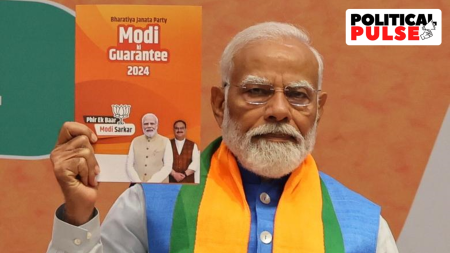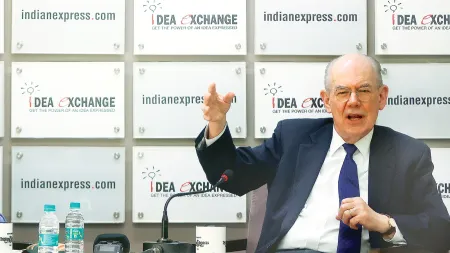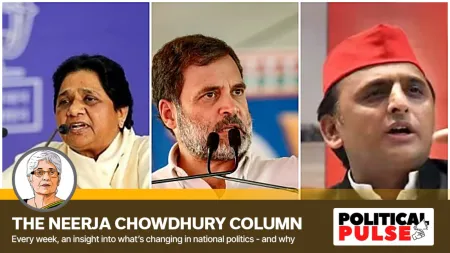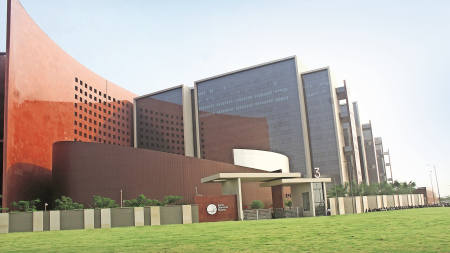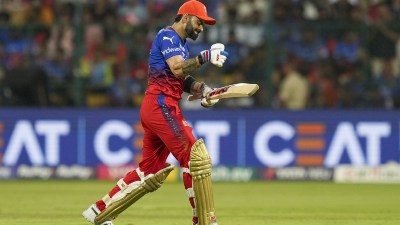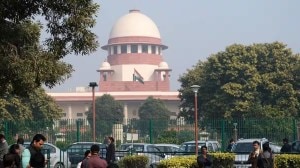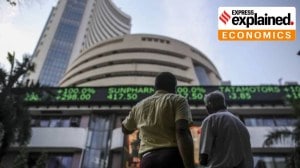- India
- International
Wants to discontinue fertiliser subsidy, push organic farming: Gujarat Minister
Faldu also appealed to farmers to keep backing the BJP government in the state and not be swayed by “propaganda” run by the Opposition.
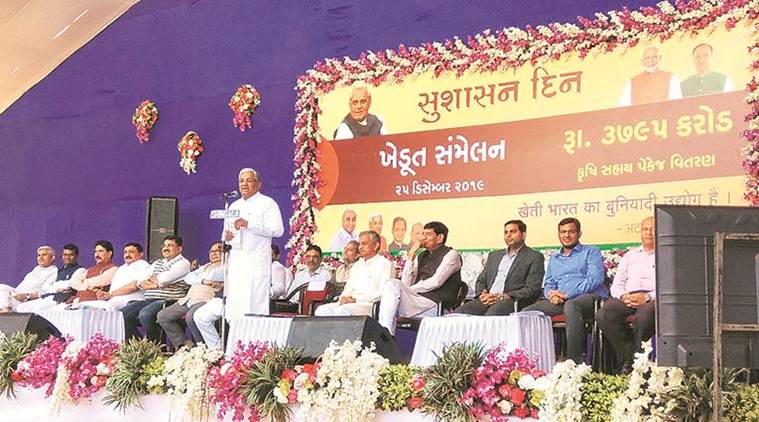 Agriculture Minister Ranchhod Faldu addresses a farmers’ meet in Targhadiya near Rajkot on Wednesday. (Express photo: Chirag Chotaliya)
Agriculture Minister Ranchhod Faldu addresses a farmers’ meet in Targhadiya near Rajkot on Wednesday. (Express photo: Chirag Chotaliya)
Raising concerns over chemical fertilisers and pesticides adversely affecting the health of people and fertility of agricultural land, Agriculture, Farmers Welfare and Cooperation Minister Ranchhod Faldu on Tuesday said that the state government wants to discontinue the subsidy for chemical fertilisers and that farmers should take up organic farming.
Addressing a public meeting of farmers at Main Dry Farming Research Station (MDFRS), Junagadh Agricultural University, at Targhadiya village near Rajkot, Faldu said that state and central government shelled out Rs 5,000 crore towards subsidising chemical fertilisers that 56.36 lakh farmers of Gujarat used in the financial year 2018-’19.
“But we want to discontinue this subsidy. You are aware of the fact that burden of disease has increased since we started using chemical fertilisers and pesticides in farming. When we were doing farming using manure, the scenario was different. In order to save our agriculture and mankind, we will have to turn to Prakrutik Kheti (organic farming), which is being promoted by Subhash Palekar,” Faldu said. Palekar is a farmer from Nagpur who is advocating zero-budget natural farming, involving cows.
The meeting was organised by the state government to formally start paying compensation to farmers for crop loss caused by excessive and unseasonal rain. Farmers from Rajkot, Jamnagar, Devbhumi Dwarka, Morbi, Porbandar and Junagadh attended the meeting where Faldu and Kunvarji Bavaliya, the Minister for Water Supply, Animal Husbandry and Rural Housing, handed over letters of compensation to select farmers. Faldu said that 9.77 lakh farmers from these six districts applied for compensation till December 24 and the state government sanctioned Rs 745 crore compensation.
The payment of compensation was officially launched by Chief Minister Rupani at an event in Vadodara. The CM began the process of transferring compensation directly into bank accounts of farmers through digital transactions.

The Agriculture Minister said that on Wednesday, which the state government celebrated as Good Governance Day to mark 95th birth anniversary of former prime minister Atal Bihari Vajayee, the state government was to credit Rs 214 crore towards compensation in bank accounts of 3.37 lakh farmers. In all, there are 56.37 lakh farmers in the state and by Tuesday, 24 lakh of them had applied for compensation. The deadline for applying for compensation is December 31.
Gujarat received 146 per cent rainfall during the south-west monsoon season 2019 and 148 out of total 251 talukas in the state were hit by unseasonal rain and hailstorms towards the end of October and early November. Excessive and unseasonal rain damaged either standing or harvested crop and to compensate farmers, the state government declared Rs 3,795 crore relief package.
The government has announced to pay Rs 6,800 per hectare to farmers in talukas that recorded one inch to two inch unseasonal rain and Rs 4,000 per hectare to farmers in talukas that recorded up to one inch of unseasonal rain. In both cases, a farmer would get compensation for maximum two hectares.
Faldu also appealed farmers to keep backing the BJP government in the state and not to be swayed by “propaganda” run by the Opposition. “You have elected us to work for you. Rest assured, we do not while away our time sitting in chairs or driving around in red beacon cars. We are working for you, providing all support you need,” said Faldu.
Apr 16: Latest News
- 01
- 02
- 03
- 04
- 05




